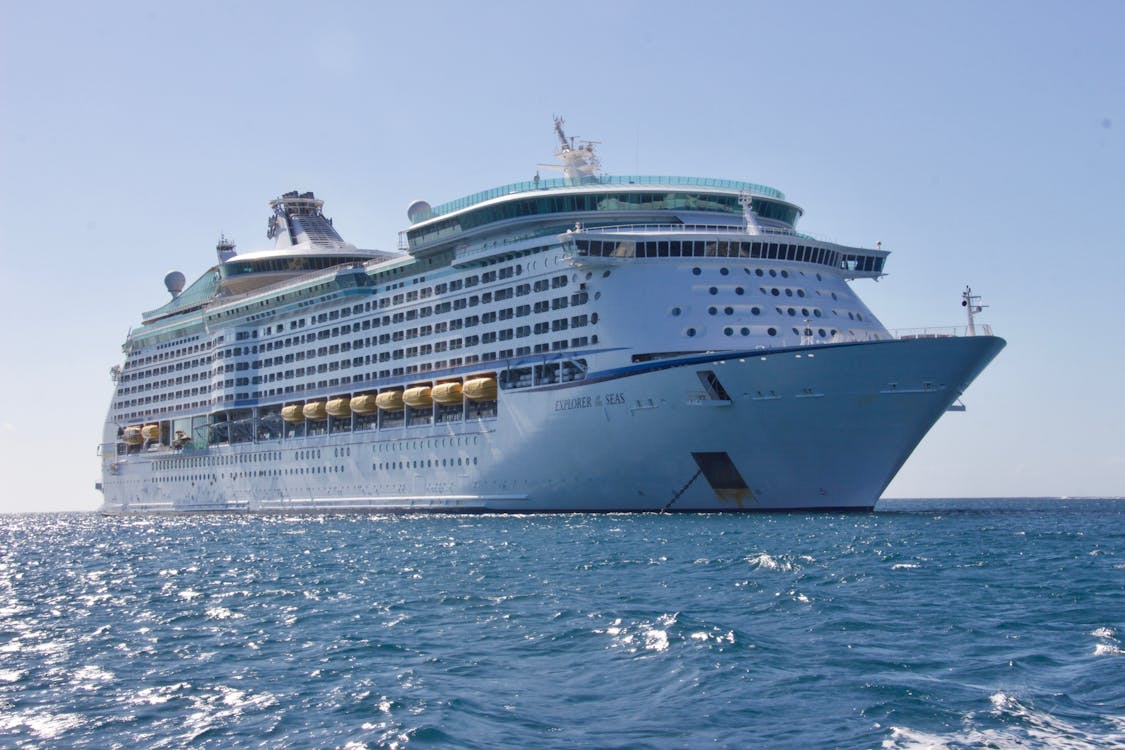Lights Out at Sea: The Queen Anne’s Haunting Night Amid Pirate Waters
What started as a dream voyage aboard the luxurious Queen Anne suddenly took a chilling turn one evening, far from any shore.
As passengers unwound and enjoyed the night, an eerie announcement crackled through the ship’s speakers:
“Close your curtains. Switch off all lights.”
No explanation. No warnings. Just an urgent command echoing through every hallway and cabin. Instantly, murmurs spread—was a storm on the horizon? A rescue underway? Or something far more ominous?

Table of Contents
Navigating a Treacherous Passage
The Queen Anne, sailing under Cunard’s prestigious banner, had departed Germany in January and was now slicing through the shadowy waters of the Sulu-Celebes Sea. Situated between Darwin and Manila, this region is known less for harsh weather and more for a different danger: piracy.

Though the swashbuckling image of pirates belongs to history books and Hollywood fantasies, today’s maritime piracy is a calculated threat that still haunts hotspots like these. While attacks remain rare, ships enforce strict stealth measures when passing through to avoid drawing any unwanted attention.
A Sudden Shift in Atmosphere
To counter these risks, the ship’s captain declared a “heightened security alert.” Outdoor decks were locked down. Non-essential lights were blacked out. Passengers were instructed to draw curtains and minimize any glow from cabins. The usually luminous cruise ship became a ghostly silhouette, blending into the ink-black sea to evade detection by potential pirates lurking nearby.

The strategy was simple: turn the ship nearly invisible at night to protect it from sight—and radar.
Passenger Reactions: From Bewilderment to Realization
A passenger captured the captain’s announcement on TikTok, sparking a wave of viral reactions:
“This is terrifying.”
“I had no idea piracy was still a real threat.”
“This is standard safety protocol in risky areas,” clarified another viewer.

A former cruise line crew member weighed in:
“When we sailed near Somalia, armed security came aboard. These precautions are no joke, but the risk to passengers is very low.”
For many, the revelation was less about danger and more about the unexpected reality that piracy still shadows modern maritime routes.
Pirates in Today’s World: Fact vs. Fiction

Contrary to cinematic depictions, today’s pirates are organized, armed groups targeting slow, high-value cargo vessels—not luxury liners. Cruise ships, with their speed, surveillance, and security, are generally poor targets.
Still, the maritime industry plays it safe—using armed escorts, rerouted paths, and strict nighttime blackout protocols to outmaneuver any threats.
Cunard’s Reassurance
Addressing public curiosity, Cunard issued a brief statement:
“Our captains occasionally make precautionary announcements as part of standard protocols when sailing through certain regions. There was no immediate threat to the ship or its guests, and all onboard services continued normally.”

In other words: no emergency, just vigilance.
When Luxury Meets the Real World
The Queen Anne’s quiet blackout was more than just a safety drill—it was a stark reminder that even the most opulent cruises must navigate real-world dangers. While the ship’s passengers might have felt a ripple of unease, the move was a testament to the cruise line’s commitment to their safety.
In an era where even paradise can conceal hidden risks, the decision to dim the lights was a symbol of preparedness—and peace of mind.

Bottom Line
Though piracy might seem like a relic from a bygone era, it remains a tangible, if rare, threat in certain maritime corridors. The Queen Anne’s brief silence under the stars was no cause for alarm, but rather a powerful example of how the cruise industry protects its guests—quietly, efficiently, and without missing a beat, even when sailing through the world’s most unpredictable waters.
